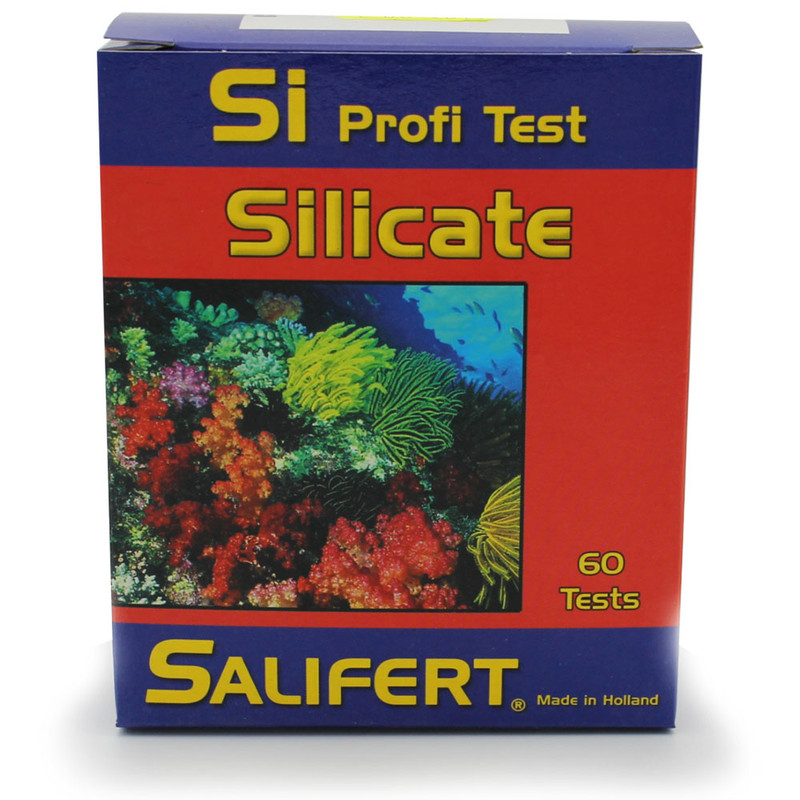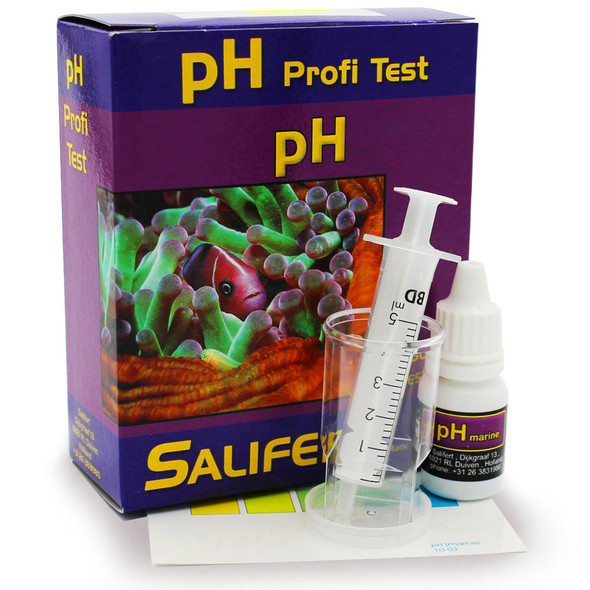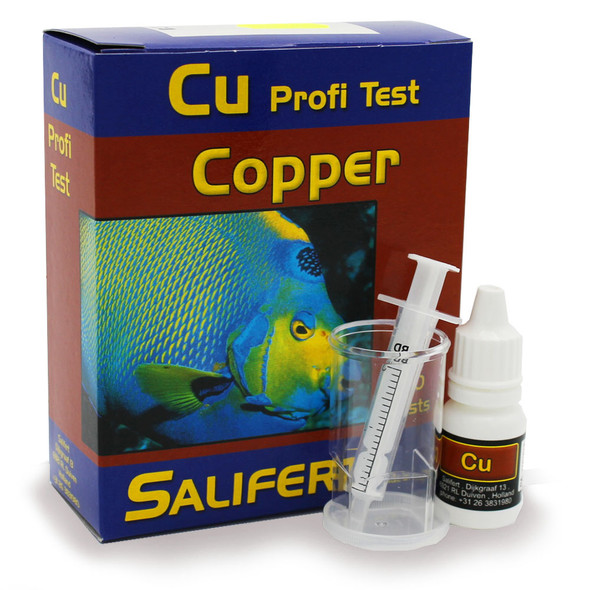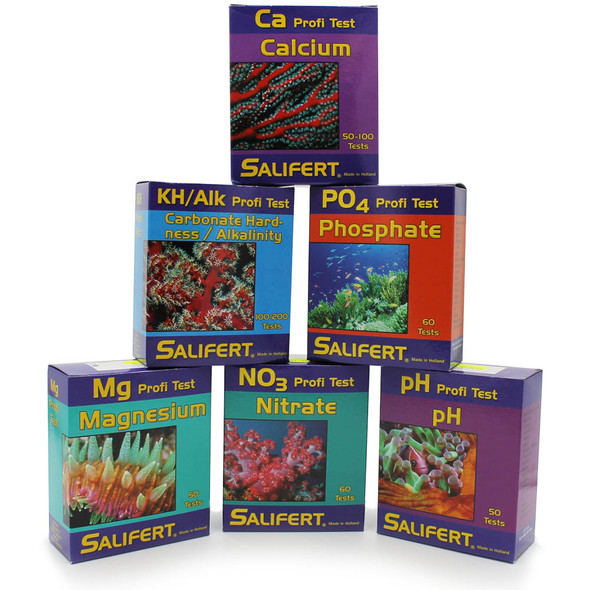Description
High levels of silicate can lead to diatom blooms. Some tap water and even RO water may have silicates and should be monitored with a Silicate Test Kit. This kit includes a test vial, syringe, three reagents and a color chart. It offers two methods of testing with resulting ranges of 0.03 to 30 PPM.
This kit will perform 60 tests for freshwater, marine and ponds.










